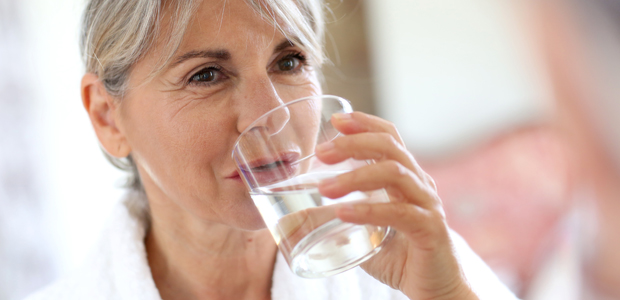Advertisement
Hydration: Myths and Facts
For a pretty straightforward topic (we all need to drink to survive), hydration can certainly be tricky. At least, there are a lot of myths about how to hydrate properly. Here, we tap into the facts of hydration (no pun intended). Myth: You need to drink 8 glasses of water a day Fact: Not quite. … Continued

For a pretty straightforward topic (we all need to drink to survive), hydration can certainly be tricky. At least, there are a lot of myths about how to hydrate properly. Here, we tap into the facts of hydration (no pun intended).
Myth: You need to drink 8 glasses of water a day
Fact: Not quite. While this is a good approximation, the actual amount you need varies on many, many factors, such as:
- your size
- climatic conditions
- clothing worn
- your activity (sitting still or exercising)
- medical conditions (those with diabetes or heart disease may need more water)
- illness (vomiting and diarrhea mean rapid fluid loss)
- pregnancy and breastfeeding
Colourless or lightly coloured urine can be a good indicator of proper hydration levels. If you’re working out, you may want to weigh yourself before and after to see how much water you’ve lost—this will give you a better idea of how much water you need while exercising.
Myth: Sports drinks are the best way to hydrate
Fact: Water is still the best to hydrate. When choosing a sports drink, beware of added sugars. Generally, sports drinks aren’t necessary unless you’re exercising strenuously. If you want to make plain water more tasty, try adding a lemon or lime wedge, some frozen berries (they keep your water cold and add subtle flavour!), or some mint.
Myth: Coffee and tea don’t count
Fact: This is false. While it’s true that caffeine can cause some people to urinate more, coffee and tea are still liquids that can count toward your daily water intake. Soups, milk, and fruit and veggie juices also hydrate us.
On a similar note, many people forget that certain foods are high in water—especially fruits and veggies. In fact, food is estimated to provide 20 percent of our total water intake! If you factor in all your food and beverages, you may not need a full 8 glasses of water a day.
Myth: I’ll know if I’m dehydrated
Fact: Thirst isn’t necessarily a good gauge of your hydration levels. Other symptoms of dehydration can include:
- less urine, no urine, or very dark urine
- dry mouth
- lack of sweat or tears
- confusion; feelings of dizziness or lightheadedness
- headache
As with most things, prevention is the best treatment. Drink plenty of fluids throughout the day, and be especially aware of your hydration levels when exercising or in the heat.
Myth: The more water, the better!
Fact: It is possible to drink too much water. It’s uncommon, but very dangerous to do so, as this means the electrolyte balance in your body is thrown off and your body’s mineral content becomes diluted. This condition has sometimes been observed in marathon runners.





